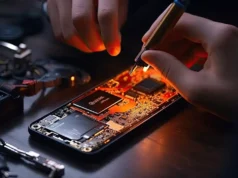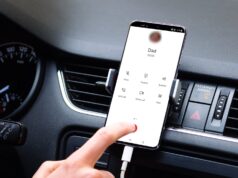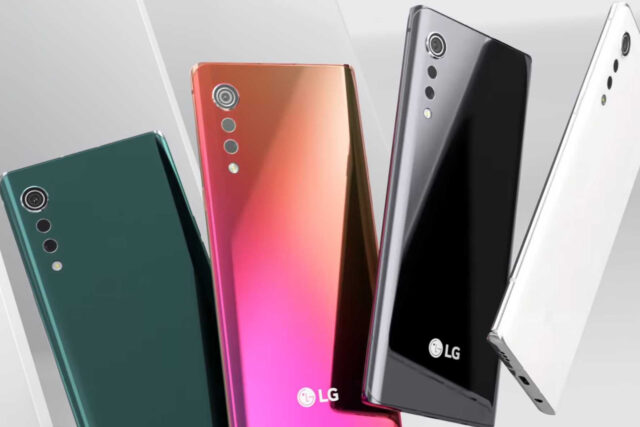
If you’re 25 or under, you’ve probably only ever owned phones made by Apple, Samsung, or Huawei. There are a few exceptions, but those three companies take up so much of the market that it’s very difficult for anybody else to compete with them. That’s the reality of the highly-competitive industry they operate in, but it hasn’t always been the case. Those of us who are a little older remember a more diverse market where phones made by Nokia, Siemens, Sony, and LG were every bit as viable as any of the big three. Those days are over, and at least one of those companies might be able to withdraw from the battlefield for good.
A little over a week ago, Korean electronics company LG angrily denied suggestions that it was preparing to discontinue its smartphones in order to focus on other avenues – specifically its range of televisions. A mere five days later, they appeared to have changed their minds. According to a memo from Kwon Bong-Seok, the company’s SEO, the company needs to make a ‘cold judgment’ about the best way forward for its business interests. The memo, which was released on Wednesday, January 20th, went on to say that all options are currently on the table as far as phones go, including downsizing production, separating and then selling off the arm of the company that produces phones, and shutting down production altogether.

It might surprise some people to hear that LG no longer makes a dent in the mobile phone business in the 2025s, but those who follow financial reports know that the company has been struggling for a while. While LG is solvent as a whole, its smartphone arm has lost more than four-and-a-half billion dollars since the end of 2015. Those losses are unsustainable even for a company of LG’s size, and a judgment call has to be made at some point. The company has tried almost everything it can think of to fight against the tide, but with little success. The G8 and the V40 models were supposed to be direct competitors for the latest generation of Samsung and Apple phones but failed to impress. LG has even tried deviating from the norms of phone design with the Wing and Velvet phones but has struggled to generate enthusiasm for those products either.
While the tone of the memo is far from upbeat, it doesn’t give a date by which any decisions are to be made. Various media outlets have contacted the company for an official comment about the leaked memo and were told that the company is committed to making changes to resolve the challenges that its smartphone business faces this year, and nothing has yet been finalized. The future might not look rosy for LG, but they might have one final trick up their sleeve before they walk away from the smartphone business – and it’s an impressive-looking trick. It goes by the name of the LG Rollable and, if marketed correctly and met with excitement, might change the shape of the smartphones of the future.
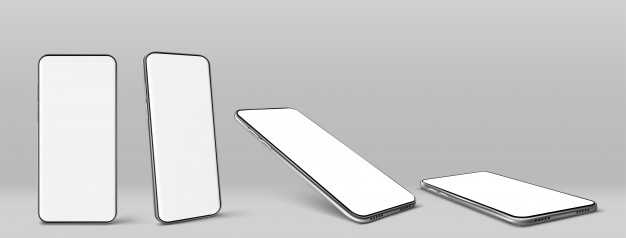
The “Rollable” name will be familiar to anyone who owns one of the company’s cutting edge televisions. To put it in its most simple terms, the phone has a screen that can be adjusted or resized. It’s the same size and shape as any standard smartphone when it’s in its default position, but it can be extended either vertically or horizontally to provide the user with a larger touchscreen and more space to work with. LG intends to position it as a phone that can be turned into a tablet, thus eliminating the need for people to pay for two separate devices. It’s an ambitious product, and no reviewers have had the opportunity to test any prototypes yet, but it’s easy to see how such an idea could catch on if it were well-made and presented correctly.
The potential for a device that blends the features of a smartphone and a tablet together will obviously appeal to those who want or need to do work on the move, but it could be an even bigger hit with a surprising demographic – online slots players. Ever since online slots first hit the internet twenty years ago, the concept has been refined, and the majority of online slots are now more likely to be played on UKGC approved casinos such as Rose Slots through mobile phones rather than laptops. The problem with that is some of the more advanced or experimental slots struggle to fit all of their reels and rows onto smaller screens comfortably. The ability to extend or expand a screen to provide more space for rows and buttons would appeal greatly to online slots players – and their numbers shouldn’t be underestimated. There were millions of them all over the planet at last count, spending upward of fifty billion dollars a year on slots. This shouldn’t be taken as a suggestion that LG should pitch to that market directly because it’s still too unique a niche, but there are enough potential customers there to make a success out of the phone if they liked the look (and feel) of it.
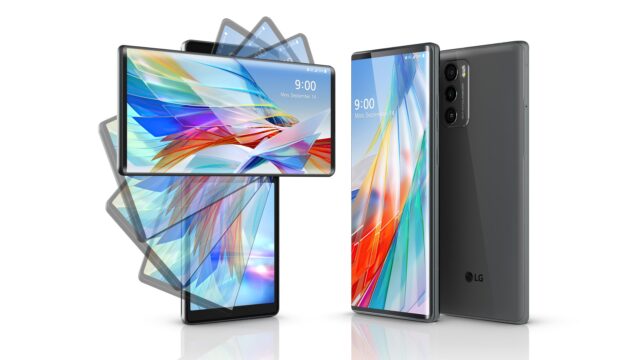
Whatever decisions are taken about the future of PG’s smartphone business, the company remains committed to releasing the Rollable phone at some as-yet-undetermined point in 2025. That means the stakes couldn’t be higher for the company or the employees who work in the smartphone department. If the launch of the device goes well, they could still save their own jobs and secure the long-term future of what was once a highly profitable arm of the business. If it receives the same tepid reaction as the Velvet and Wing phones, then it will add another large figure to the department’s losses and almost certainly seal its fate. The Rollable could be LG’s salvation, or it could be the last smartphone the company ever makes. That’s an unthinkable position when you consider LG’s standing a mere ten years ago, but that’s how quickly things change and progress in the technology world.
We’re keeping a close eye on the progress of the LG Rollable, and we’ll be back with more information when the company makes it available. We’ll do the same with any information about the long term future of the business. These are dicey waters for one of the longest-tenured mobile phone manufacturers in the industry, but it’s not all over yet.

